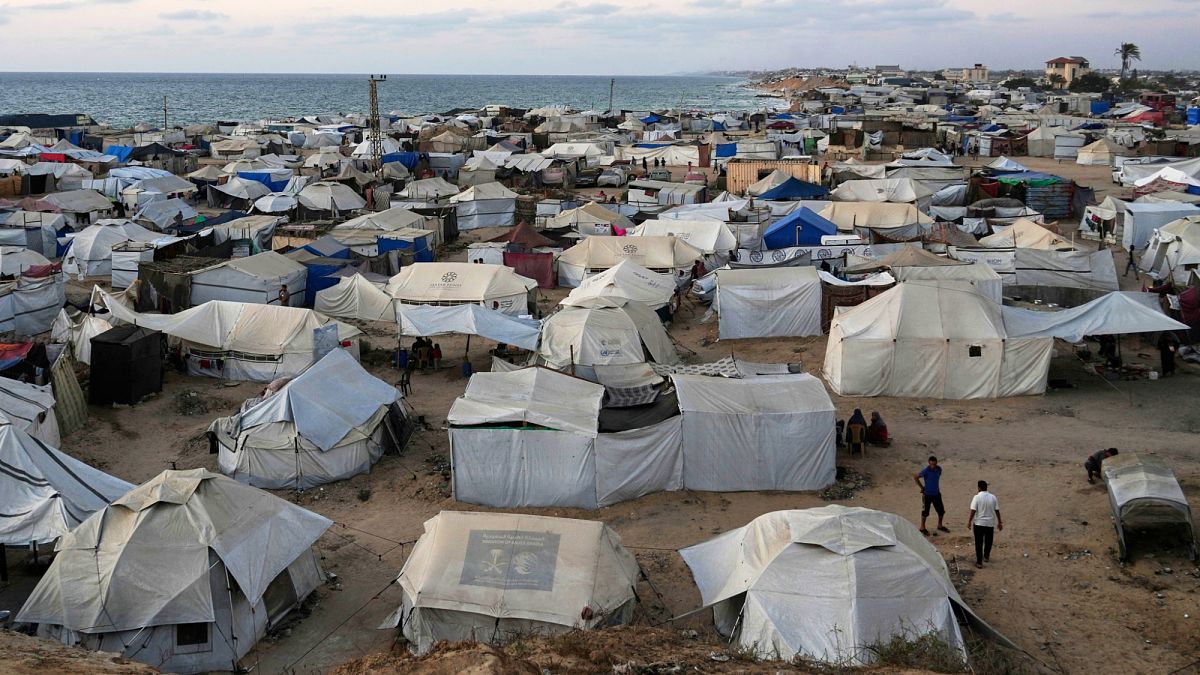

Europe finds itself gripped by an increasingly severe heatwave, adding layers to the ongoing challenges presented by climate change. As temperatures soar across the continent, various regions, from the Mediterranean coastlines to the core of the European mainland, are experiencing distinct impacts that highlight the broader implications of this extreme weather phenomenon.
In Gaza, the heatwave has amplified an existing humanitarian crisis. Temperatures exceeding 30°C are making life in makeshift accommodations particularly challenging for families like Reda Abu Hadayed’s, who are struggling with limited access to essential amenities such as water and electricity. The harsh weather conditions intensify the plight of these communities, underscoring the urgency of addressing both immediate and long-term infrastructure needs in such vulnerable regions.
Meanwhile, a wildfire on the Greek island of Crete forced the evacuation of over 1,500 residents and tourists from the Ierapetra area. The blaze, exacerbated by the extreme heat, represents a growing threat across the region. Additional wildfires are being reported in various parts of Europe including Spain, Turkey, and Germany. Particularly in Turkey, high winds near Izmir have complicated firefighting efforts, compelling the use of aerial resources at the break of dawn to bring the situation under control. These instances highlight the destructive potential of wildfires, which are becoming more frequent as global temperatures reach new highs.
Elsewhere in Europe, the effects of the heatwave are prompting significant infrastructural responses. France and Switzerland have preemptively shut down several nuclear power plants to prevent thermal pollution. These facilities often rely on local rivers or seas to cool down, releasing warmed water back into the environment. However, the elevated temperatures could potentially threaten local ecosystems, prompting power plant operators to take precautionary measures that prioritize ecological balance amidst rising heat.
Science continues to shine a spotlight on the growing frequency and severity of heatwaves as direct manifestations of climate change. Experts emphasize that these extreme weather events are likely to become the new norm, particularly in southern Europe. As June stands poised to be one of the hottest months on record, communities and governments alike are called to adapt with foresight and resilience—an endeavor that fosters both unity and innovation in addressing climate challenges.
Amidst these trials, solidarity and preparedness stand out as crucial strategies. As nations collaborate and share resources, there is a collective journey towards safeguarding both human life and the environment from the impacts of climate change. Each step taken today can ease the path for future transitions, ensuring that communities across Europe and beyond are well-equipped to face the evolving climate landscape with courage and compassion.
Source: {link}
